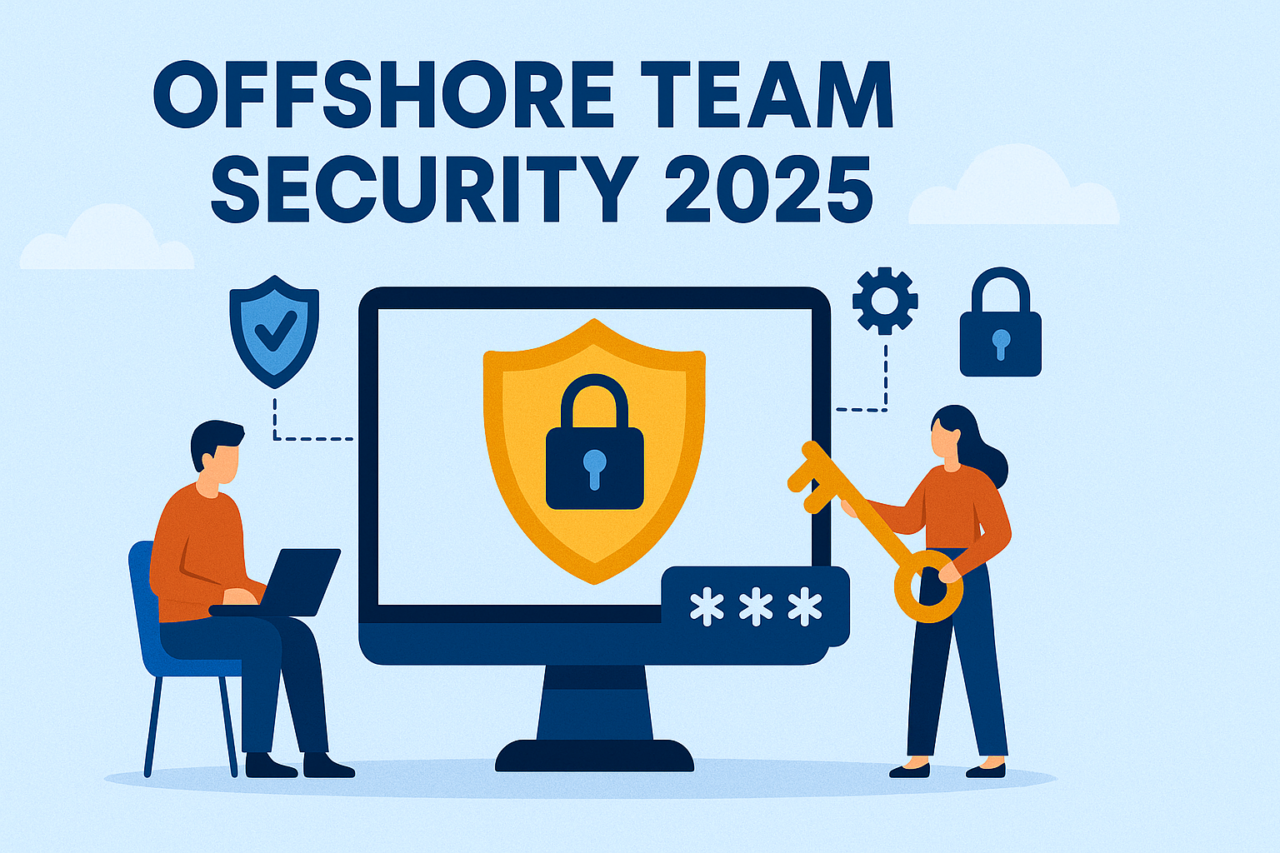The biggest hesitation many U.S. businesses have about offshore development is security. Data breaches, IP theft, and compliance violations can be costly, both financially and reputationally. But the truth is, offshore team security has evolved significantly. In 2025, with the right structures in place, offshore teams can be as secure as in-house teams. Here’s how startups can protect their data and intellectual property while scaling globally.
Understand the Risks Before You Scale
Founders often underestimate how security risks arise. It’s not always malicious intent—it could be something as simple as weak password policies, sharing files on unsecured platforms, or unclear IP ownership. By identifying risks early, you can design offshore team structures that minimize exposure.
Use Contracts and NDAs to Protect IP
Legal safeguards are the foundation of offshore security. Every developer, whether in-house or offshore, should sign non-disclosure agreements (NDAs) and intellectual property assignment agreements. These documents make clear that all code, designs, and outputs belong to your company. Without these contracts, ownership can get murky and disputes harder to settle.
Apply Strong Access Controls
Not every team member needs access to your full product infrastructure. Limit permissions based on roles. Developers can work effectively with access to code repos but may not need production server credentials. Use VPNs, multi-factor authentication, and single sign-on (SSO) systems to reduce vulnerabilities.
Align With Global Compliance Standards
Depending on your industry, compliance may be mandatory. For healthcare SaaS, HIPAA is critical; for EU-based users, GDPR applies; for enterprise clients, SOC 2 may be required. Choose offshore providers who already align with these frameworks—it saves time and avoids risk when negotiating with enterprise customers.
Leverage Secure Collaboration Tools
In 2025, there are plenty of tools built for secure remote work. Platforms like GitHub Enterprise, Slack with enterprise security, and Google Workspace with data loss prevention policies can protect sensitive data. Training offshore developers on best practices for using these tools is equally important.
Build Security Awareness Into Culture
Security is not just about software or legal documents—it’s about habits. Offshore developers should be trained in phishing awareness, password hygiene, and secure file-sharing. Making security part of onboarding and ongoing training creates a culture where risks are spotted early.
AcquireX’s Approach to Offshore Team Security
At AcquireX, offshore team security is a top priority. Every team we build is supported by:
-
Legal contracts with strict IP clauses
-
Role-based access policies and VPN use
-
Compliance with GDPR and HIPAA where relevant
-
Secure infrastructure for collaboration and communication
For U.S. startups, this means peace of mind while scaling with offshore talent.
The Bottom Line
Offshore development should never mean sacrificing security. With contracts, compliance, access controls, and the right partner, your offshore team security can match or even exceed local standards. As startups scale in 2025, security will be the differentiator between those who succeed globally and those who struggle. With AcquireX, your data and IP remain protected while your business grows.


